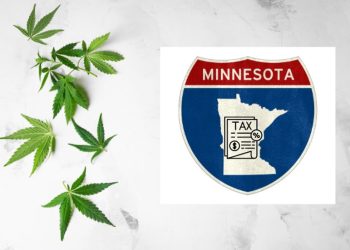Q. Does CBD alleviate insomnia?
If you’re one of the many individuals who have been experiencing insomnia due to the pandemic, you might have been tempted to try a sleep aid like CBD in order to get a better night’s sleep. In contrast to THC, the other well-known and psychotropic component of the cannabis plant, CBD is promoted for treating a variety of illnesses, including pain, anxiety, and, yes, sleep issues.
According to Mitch Earleywine, a professor of psychology at the University at Albany in New York and a member of the nonprofit National Organization for the Reform of Marijuana Laws’ advisory board, while the exact mechanisms by which CBD acts in the body are not yet fully understood, it is believed to reduce inflammation, which may help with pain relief, and to calm the central nervous system, which may help with anxiety.
The only CBD prescription recognized by the Food and Drug Administration is Epidiolex, an anti-epileptic drug. Its soothing effects have also been demonstrated to treat some forms of seizures.
What we know when it comes to CBD and Sleep
There is, however, a paucity of evidence on the benefits of CBD for sleep. According to Anastasia Suraev, a PhD candidate and research fellow at the Lambert Initiative for Cannabinoid Therapeutics at the University of Sydney, “to this day, there’s no study that has employed CBD on its own in any treatment of insomnia.” Studies have shown that the usage of CBD and THC together shows promise in the treatment of sleep problems include insomnia, sleep apnea, restless legs syndrome, and nightmares associated with PTSD. However, CBD alone has not been studied in big placebo-controlled clinical studies, the gold standard for scientific study, to see if it can improve sleep.
Ms. Suraev, along with the other experts we spoke to, noted that CBD itself does not have sedating effects. While some studies on CBD for seizures found that a side effect of the treatment was drowsiness, that may have been because of “CBD interacting with other medications” like anti-epileptic drugs, Ms. Suraev said.
However, according to Ryan Vandrey, professor of psychiatry and behavioral sciences at the Johns Hopkins University School of Medicine and director of the institution’s Cannabis Science Laboratory, CBD may indirectly benefit sleep by treating other diseases. He gave the example of being able to sleep better if pain keeps you up at night and CBD helps to relieve your suffering. Similarly, he continued, “CBD may lessen anxiety” if you have trouble falling asleep as a result of your anxiety. This could help you get some rest.
In one case series, researchers reviewed the medical records of 72 patients who had anxiety or sleep issues and had been given 25 to 175 milligrams of CBD daily for three months at the same clinic. The researchers discovered that CBD was most beneficial for anxiety, not sleep, based on the patients’ self-reports at follow-up consultations. However, “in the end, even if they weren’t sleeping better, they were less nervous about it and felt perhaps more rested,” said Dr. Scott Shannon, the study’s principal investigator and a psychiatrist in Fort Collins, Colorado.
Dr. Vandrey issued a warning, noting that there aren’t many studies like this one accessible and that there isn’t enough information to identify the right amount, type, or brand to treat anxiety or any other ailment. Since Epidiolex is the only CBD product covered by FDA regulation, there is a wide selection of oils, candies, lotions, patches, and vape pens available, each with a different composition, level of purity, and labeling procedures. There is state-level regulation, but it varies from state to state, according to Dr. Vandrey. Furthermore, none of those states have the F.D.A.’s infrastructure, resources, or level of enforcement.
For instance, Dr. Vandrey and his colleagues examined the ingredients of 84 different CBD products, including oils, tinctures, and vape liquids, bought from 31 online vendors in a 2017 JAMA study to determine whether or not their labeling were true. They discovered that just 26 of the goods had appropriate CBD content labels; 36 products contained more CBD than claimed, and 22 contained less. In addition, they discovered that 18 of the products included THC that was not declared, often in doses high enough to make people feel intoxicated.
Dr. Vandrey explained, “So you can order CBD oil, but CBD oil is not CBD oil is not CBD oil.
Can you take CBD Safely?
Despite the ambiguity, the specialists we spoke to said that using CBD if you’re having difficulties sleeping is not unrealistic. But bear in mind this advice.
First, discuss it with your doctor. According to Dr. Vandrey, CBD is a chemical entity that is extremely harmless and has very little toxicity. Make sure your doctor is aware of all the medications and dietary supplements you’re presently taking because some of them, such as the blood thinner warfarin, the breast cancer medication tamoxifen, several anti-seizure medications, and some antidepressants, may interact with it.
Verify the brand’s legitimacy. According to Dr. Vandrey, purchasing CBD products from a state-licensed cannabis dispensary is the best method to find high-quality CBD products. If you are unable to accomplish that, search for well-known national brands, he advised. Websites for reliable brands should provide certificates of analysis for each distinct product batch. This certificate of analysis, which can be found on the business’s home page under “F.A.Q.,” “Questions,” “Lab Results,” or just “Certificate of Analysis,” demonstrates that their product was examined by an outside laboratory for its concentrations of CBD, THC, and other cannabis compounds as well as for any potential contaminants like pesticides or heavy metals. Choose a different brand if you can’t find a certificate of analysis on the website with ease. Some businesses may also claim to utilize good manufacturing procedures (G.M.P. ), which means their goods were produced in accordance with FDA requirements.
Start out with a low dose and gradually increase it. The specialists we spoke to advised starting with a modest dose to ensure you tolerate it well because there is no agreement on how many milligrams of CBD a person should take or in what form (aside from with Epidiolex). After that, steadily up the dosage until you start to notice a difference. Dr. Shannon suggested starting with doses of closer to 15 to 20 milligrams per day and experimenting to find what works for you. Many clinical research on CBD use doses of 200 to 800 milligrams per day.
Don’t forget to practice proper sleeping habits. According to Dr. Earleywine, the placebo effect, rather than modest dosages of CBD, may be to blame if you have better sleep after taking them. Although it’s not always a bad thing, you might discover that treating your insomnia behaviorally, such as cutting back on your caffeine consumption and avoiding screens too close to bedtime, is just as helpful — and less expensive.
















